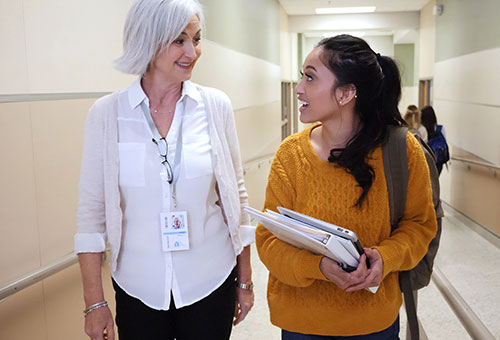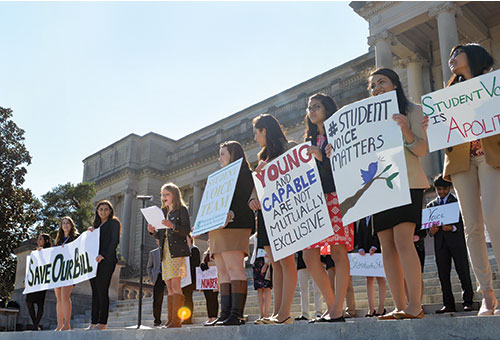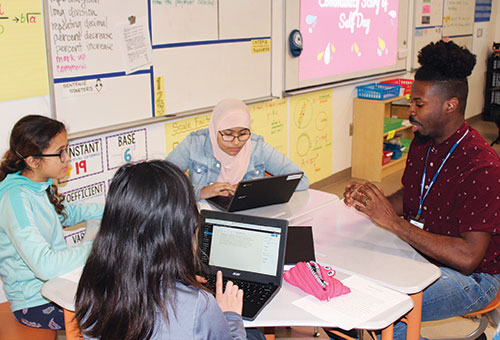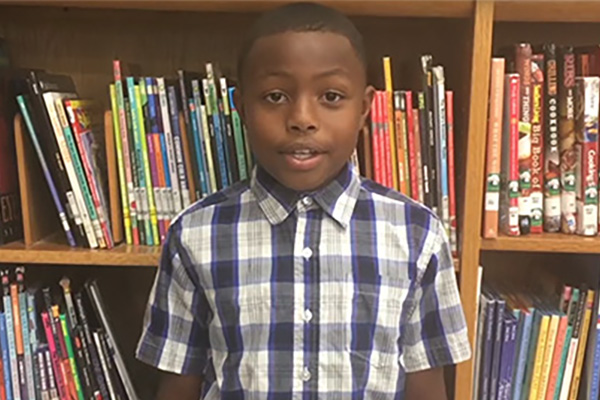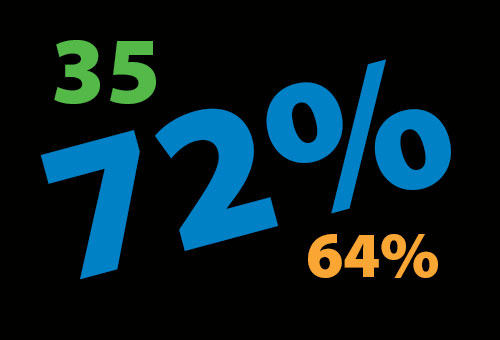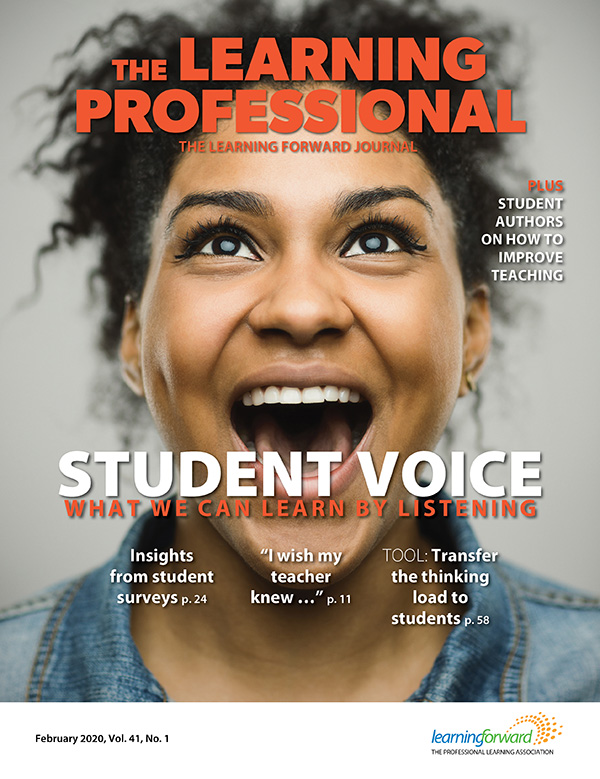
Student Voice
February 2020
Vol 41, No. 1
Read the remaining content with membership access. Join or log in below to continue.
Sed ut perspiciatis unde omnis iste natus error sit voluptatem accusantium doloremque laudantium, totam rem aperiam, eaque ipsa quae ab illo inventore veritatis et quasi architecto beatae vitae dicta sunt explicabo. Nemo enim ipsam voluptatem quia voluptas sit aspernatur aut odit aut fugit, sed quia consequuntur magni dolores eos qui ratione voluptatem sequi nesciunt. Neque porro quisquam est, qui dolorem ipsum quia dolor sit amet, consectetur, adipisci velit, sed quia non numquam eius modi tempora incidunt ut labore et dolore magnam aliquam quaerat voluptatem.
In This Issue
FOCUS
What do students need? Let's ask them.
Student voice can only make a difference if we listen and follow through with action.
Students as education partners
Kentucky student team bridges school policy and practice.
Learning is a two-way street
A middle school in Cambridge, Massachusetts strengthens teaching by focusing on student identity.
Learn to listen
Using student interviews to drive professional learning can improve instructional practice.
See me for who I am
High school student urges teachers and leaders to develop their cultural competency.
What students can tell us
Student perception surveys give teachers valuable data to change their practices.
What I wish my teacher knew
Student journalists share how teachers can help students feel safe, welcome, and successful.
Student counsel
The Learning Professional asked young people what educators should learn from them and why.
What do teachers and school leaders need to hear more often?
In this video, Tennessee students share their thoughts and thanks.
TOOLS
Shift the thinking load to students
Reflection tool helps educators promote students’ problem solving and critical thinking.
Through the lens
Examine this issue through the lens of the Standards for Professional Learning.
IDEAS
Learning conversations
Nine conversation frameworks can help PLCs turn reflection into public dialogue.
A different kind of book club
In “unbook clubs,” choice and voice fuel learning for Hawaii’s Teacher Leader Academy.
Rebuild and reboot
A university-district partnership in California revamps a professional learning support system.
ONLINE EXCLUSIVE: A bold experiment
Teacher leader program unites science teams across districts.
ONLINE EXCLUSIVE: Co-teaching as catalyst for learning
Principal and teacher collaboration in the classroom makes schoolwide change possible.
RESEARCH
Survey sheds light on the state of coaching
A survey of U.S. educators leads to insights on how to improve coaching’s effectiveness.
Essentials
The latest research on coaching for literacy, teacher leadership policies, teacher attrition, and more.
VOICES



UPDATES
Recent Issues
WHERE TECHNOLOGY CAN TAKE US
April 2024
Technology is both a topic and a tool for professional learning. This issue examines benefits, challenges, and what learning leaders need to know.Read the remaining content with membership access. Join […]
EVALUATING PROFESSIONAL LEARNING
February 2024
How do you know your professional learning is working? This issue digs into evaluation purposes, methods, tools, and results.
TAKING THE NEXT STEP
December 2023
Professional learning can open up new roles and challenges and help educators thrive in them. This issue shows how that benefits staff and students alike.
REACHING ALL LEARNERS
October 2023
Both special education and general education teachers need support to help students with disabilities succeed. This issue highlights how professional learning can help ensure that all students’ needs are met.Read […]


